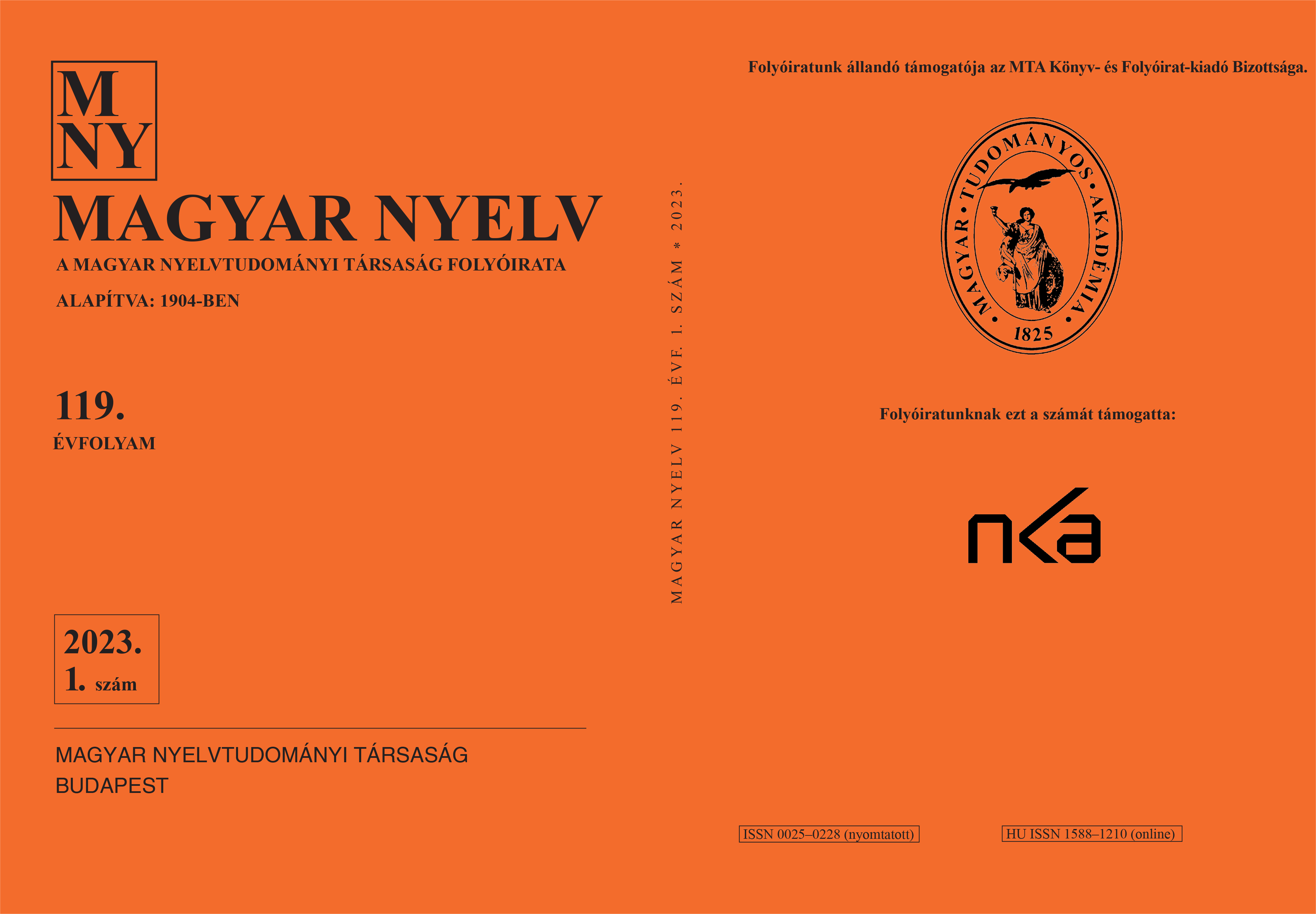On the interpretation of a Hungarian idiom nyakába rántja a büdös berhét ‘pull the foul berhe up to someone’s neck’
Adalékok néhány régi szólásunk értelmezéséhez
DOI:
https://doi.org/10.18349/MagyarNyelv.2023.1.76Keywords:
historical linguistics, etymology, historical lexicology, historical phraseologyAbstract
The idiom cited in the title is included in the phraseological dictionary by Gábor O. Nagy but the meanings of both the whole expression and its component berhe are given incorrectly. This paper attempts to uncover the original meaning of the idiom by presenting several 17th-century Hungarian set phrases for humiliating someone by turning one’s own argument against oneself. Nyakába rántják a büdös berhét ‘pull the foul berhe up to his neck’, multiply attested in Péter Pázmány’s works, is one such expression, the meaning of whose noun component is not ‘leather apron’ as given by Gábor O. Nagy but ‘trousers, underpants’. The idiom used to have other variants, including the heavily metaphorical nyakába fordítják a párlúgot ‘shed lye on one’s neck’, in which párlúg ‘lye’ was a liquid used in bucking clothes. Both berhe and párlúg appear in other idioms, too, including valakinek van/nincs foltos berhéje ‘have (not) a patched berhe’, toldozza-foldozza a foltos berhét ‘keep mending the patched berhe’, or öntögeti valakire a párlúgot ‘keep shedding the lye on somebody’.
Downloads
Published
Issue
Section
License
Copyright (c) 2023 Tamás Forgács

This work is licensed under a Creative Commons Attribution-NonCommercial-NoDerivatives 4.0 International License.
Magyar Nyelv is a Diamond Open Access periodical. Documents can be freely downloaded and duplicated in an electronic format, and can be used unchanged and with due reference to the original source. Such use must not serve commercial purposes. In the case of any form of dissemination and use, Hungarian Copyright Act LXXVI/1999 and related laws are to be observed. The electronic version of the journal is subject to the regulations of CC BY-NC-ND (Creative Commons – Attribution-NonCommercial-NoDerivatives).
The journal permits its authors, at no cost and without any temporal limitation, to make pre-print copies of their manuscripts publicly available via email or in their own homepage or that of their institution, or in either closed or free-for-all repositories of their institutions/universities, or other non-profit websites, in the form accepted by the journal editor for publication and even containing amendments on the basis of reviewers’ comments. When the authors publicize their papers in this manner, they have to warn their readers that the manuscript at hand is not the final published version of the work. Once the paper has been published in a printed or online form, the authors are allowed (and advised) to use that (post-print) version for the above purposes. In that case, they have to indicate the exact location and other data of the journal publication. The authors retain the copyright of their papers; however, in the case of an occasional secondary publication, the bibliographical data of the first publication have to be included.



